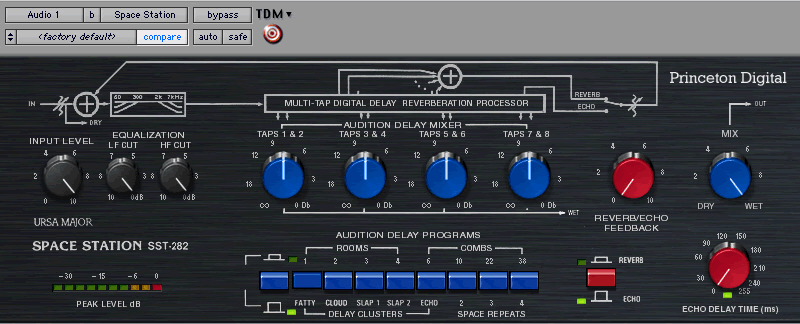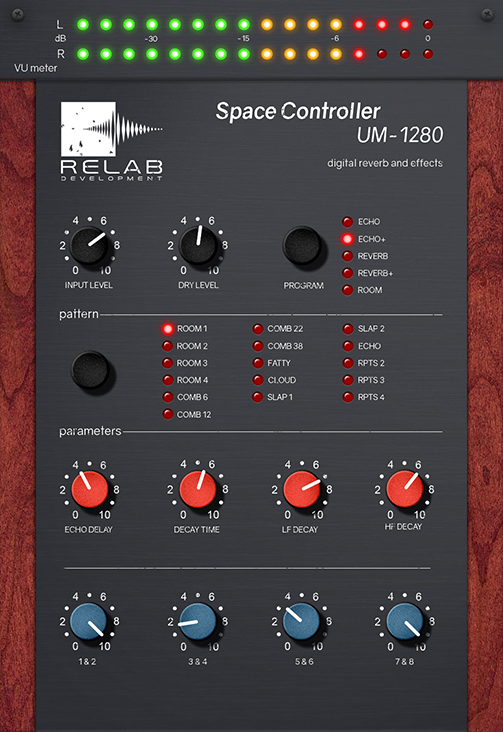Судя по ссылкам, где пишет представитель Relab и общим характеристикам UM-1280 - это именно SST-282.
Что общего у Eventide и Princeton
http://rmmedia.ru/threads/83417/page-13#post-2030413
Princeton = Eventide. Юридически не в прямом смысле
28 сентября 2004 года Princeton Digital анонсировала Pro Tools TDM плагин SST-282 - реплику железного Ursa Major Space Station SST-282, которая выпускалась с 1981 года (Frequency Response: 20Hz-7kHz).
http://princetondigital.com/PD5/news/sst-release.html
http://www.vintagedigital.com.au/ursa-major-space-station-sst-282
Плагин Princeton Digital SST-228 стоил $499, и конечно же автор оригинальной железки получал fee.
В целях создать клон железного SST-282 1в1, Princeton работала с Chris Moore, дизайнером железного SST-282. Хотя клонировать ничего не пришлось, автор сам всё сделал годом ранее, но в железе. Об этом ниже..
http://princetondigital.com/PD5/products/sst.html
Спустя 20 лет после выхода оригинальной железки, между 2003 годом и августом 2008 года было выпущено переиздание Seven Woods Audio (президент Chris Moore) - Ursa Major Space Station SST-206, размером с книжку.
http://www.sevenwoodsaudio.com/products.htm
Переиздание базировалось на 150MHz 24 bit Motorola DSP chip, т.е. не сложно догадаться - 56k серия motorola (ныне freescale), как в Powercore/Pro Tools TDM/Access Virus и т.д.
По сути, сначало вышло переиздание железки "на проце от PT TDM", а потом вышел "порт" в PT TDM, т.к. автор видимо решил не выпускать плагин самостоятельно, а обратиться к своему другу из Princeton Digital/Eventide, у которого уже был на тот момент опыт выпуска плагинов.
Moore recalled, "When I designed the Space Station in 1977, I crafted a unique reverb algorithm and the hardware to support it as a single, organic unit.
In designing the new SST-206 Space Station, I used a powerful contemporary 24 bit DSP to replicate the original Space Station sound, complete with simulation of the 12-bit floating point converters, the 7kHz bandwidth, and the artifacts of time modulation."
Moore added that he resisted the temptation to change the sound of the original unit, affectionately characterized by some of its users as "garage grunge."
SST-206 стоил $1395.
How come you didn't make it as a plug-in??
I like a hardware format because of the user interface--it's just so easy to immediately reach for a knob that's always responsive.
Nevertheless, my friends at Princeton DIgital have made, with my participation, a plug-in version of the SST-282 only (not the room program, not the plus versions of SST-Echo and SST-Reverb).
It is compatible with DigiDesign Pro Tools HD. Go to Princeton Digital for more information, or to buy one.
Does the SST-206 sound exactly like the original Space Station SST-282?
Yes, although some users have said it's "a little cleaner."
Every effort was made to achieve the same sound (truncating 24 bit data to 11 bit floating point, adding low level quantizing noise, filtering the audio with a sharp cutoff 7kHz low pass filter, etc.).
All the analog EQ curves and the digital time delay factors are closely replicated and, of course, the algorithm is the same.
About the only factor I can think of that isn't copied is the actual sampling rate (which was 16kHz), so there may be a little more aliasing distortion in the original SST-282.
Both units were designed by Christopher Moore, and reference was made to actual samples and original design notes during the design of the SST-206.
По ссылке выше явно видно что это клон переиздания, по пользователькому интерфейсу
http://forums.scopeusers.com/viewtopic.php?f=16&t=34553
Хотя для платформы Scope.. Щас видимо доползли до native.
Ursa Major Space Station SST-206 is a re-creation of the classic Space Station SST-282.
The SST-282 is a unique reverb algorithm from the late 1970s and was a multitap delay based echo, ambience, and reverb device.
The re-creation, SST-206, features all the original Space Station algorithms, and furthermore adds two improved versions of the original programs and a new Room algorithm, which is completely different from the other Space Station programs.
This test version only includes one of the five featured programs (the SST Echo+ program).
The remaining four reverb and effect programs known from the SST-206 (SST Echo, SST Reverb, SST Reverb+, and Room) will of course be developed and will be available in the future.





